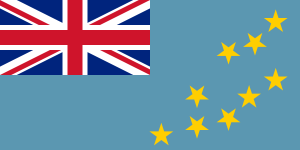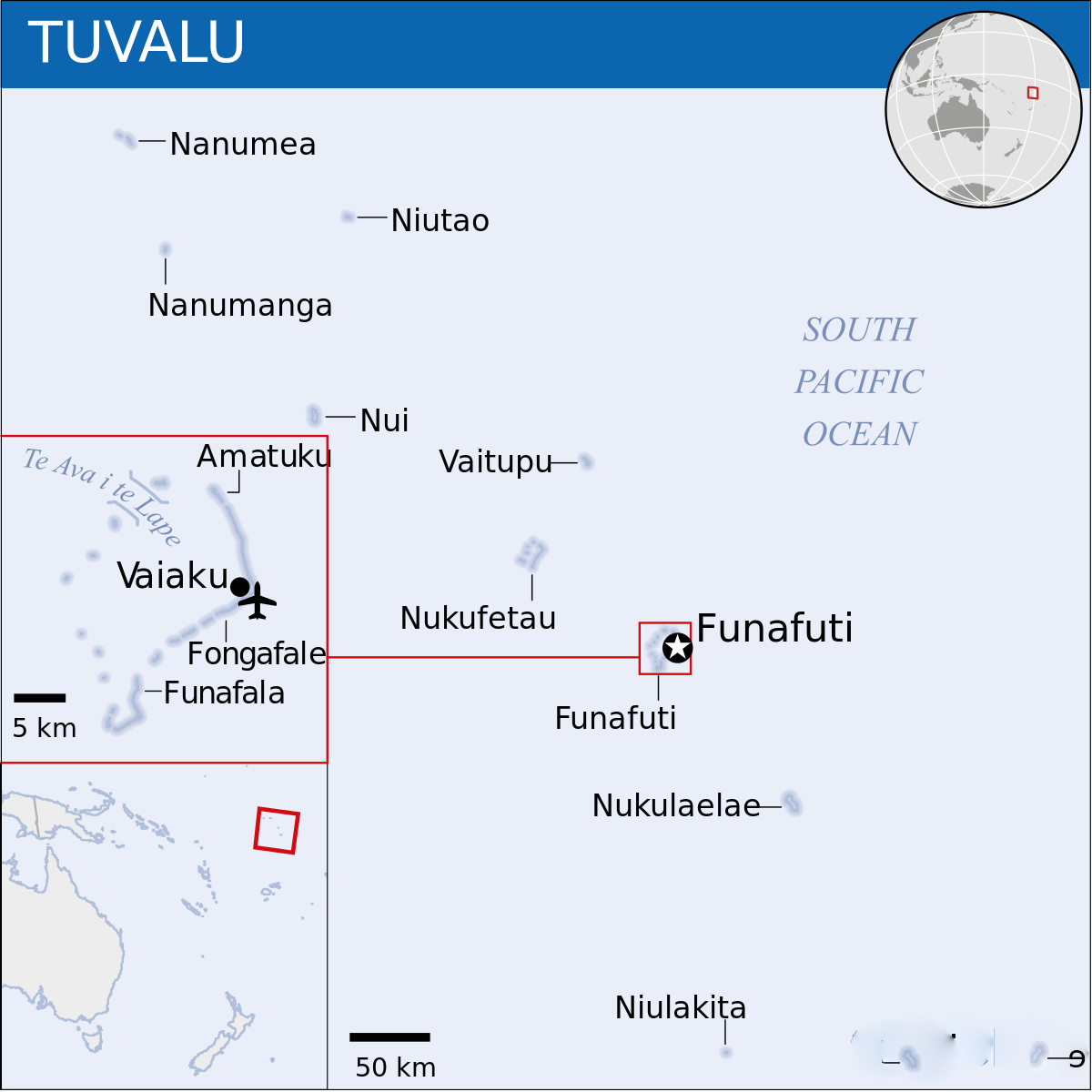
Tuvalu
International Disaster Response Law in the Pacific
Overview

Legal Preparedness for International Assistance Assessment
1. Does Tuvalu have a clear legal framework for disaster risk management which includes procedures relating to international disaster assistance?
As mentioned above, the National Disaster Management Plan 1997 and the National Disaster Management Act 2008 make up the legal framework for disaster risk management.
The NDMP states that in a disaster within Tuvalu where the local community or national government does not have the capacity to effectively respond, they may request international assistance. Specific provisions for International Assistance are further contained in the NDMP where Cabinet will, at the recommendation of the NDC, determine what international assistance will be required, and through the Minister for Foreign Affairs, issue a formal request for international assistance. This provision, however, is only referenced in the Recovery phase of the Plan and not in the Response phase. Although, under the NDMA, a function of the NDC is to advise the Minister on the need for aid to counter the effects of a disaster and on any agreement proposed for the government to enter into to
obtain such aid. In addition, the NDMO’s main functions include dealing with disaster related affairs at both national and international levels.
2. Do Tuvalu’s laws and regulations clearly set out a focal point for coordinating international disaster assistance?
Under the current framework, the Secretary for Foreign Affairs is tasked with liaising and negotiating with international bodies for external assistance, while the NDMO is responsible for carrying out disaster management; carrying out tasks and responsibilities handed down by the Minister and the Committee; advising the Committee; and dealing with all the disaster related affairs at the national and international level. Aside from these references, there appear to be no specific provisions appointing a focal point or outlining the process for the coordination of international disaster assistance.
3. Do Tuvalu’s laws and regulations outline the roles and responsibilities of different institutions relating to international disaster assistance?
The National Disaster Plan sets out the functions of various bodies and individuals as they relate to disaster assistance at a national level with some mention of interaction with international disaster assistance but even this is minimal. For example, the Secretary for Finance and Economic Planning is responsible for controlling emergency relief funding, including that provided by external donors and relief agencies and the NDC is responsible for identifying and managing international support requirements during post recovery; identifying elements of the recovery and relief programme that can be supported by NGOs; and coordinating recovery and relief operations. There is no mention in the legal framework on the obligations of international actors.
4. Do Tuvalu’s laws and regulations outline a process for requesting/welcoming offers of international disaster assistance, and for terminating international assistance?
Section 5.2 of the National Disaster Management Plan outlines the process by which Tuvalu may request international assistance. Cabinet will, at the recommendation of the NDC, determine what international assistance will be required, and through the Minister for Foreign Affairs, issue a formal request for international assistance. There appear to be no provisions for terminating international assistance.
Both the NDMA and the NDMP make reference to a response and recovery phase, although neither, provide details when one phase ends and the other begins. They also make no mention of the prepositioning of relief items or the management of unsolicited goods.
5. Do Tuvalu’s laws and regulations provide for necessary legal facilities to be provided to international assisting actors?
While there are no specific provisions dealing with international assisting actors, the NDMA grants broad powers to the Minister during a state of emergency to make actions which may be necessary, prescribes it an offence to interfere with anyone performing a role under the NDMP and grants immunity from liability due to actions undertaken in good faith during a state of emergency. The Visiting Forces Act and the Customs Revenue and Border Patrol Act also prescribe various exemptions for visiting military.
There are no specific provisions exempting aid items from either tax or customs duty.
6. Do Tuvalu’s laws and regulations set out quality standards for international assisting actors?
There are no obvious quality standards for international assisting actors contained in Tuvalu’s disaster risk management regulatory frameworks.
7. Do Tuvalu’s laws and regulations set out eligibility requirements for international assisting actors to receive legal facilities?
Given that there are no evident provisions for international assisting actors to receive specific legal facilitates, no eligibility requirements exist. However, the discretion does exist for the Minister to make provisions where necessary.
8. Do Tuvalu’s laws and regulations establish a specialised unit for expediting the entry of international disaster assistance?
The NDMP provides for Cabinet to request international assistance upon the advice of the NDC, however there is no provision for a specialised unit to then facilitate or expedite the entry of the international disaster assistance.
9. Do Tuvalu’s laws and regulations provide adequate transparency, safeguards and accountability mechanisms governing international disaster relief and initial recovery assistance?
The NDMA provides that all donations to assist in recovery from a disaster must be used for that purpose only unless otherwise authorised by the Minister. Section 38 of the NDMA further provides that the misuse of such donations will incur a penalty. The nature of the penalty is not stated.
More recent developments in Tuvalu have seen the establishment of the Tuvalu Climate Change and Disaster Survival Fund under the Climate Change and Disaster Survival Fund Act 2015, which aims to provide services to the people of Tuvalu in combating the devastating impact of climate change and natural disasters and to allow the Government and people of Tuvalu to effectively respond to future climate change impacts and natural disasters. All donations from foreign governments, foreign organisations, and individuals are to be placed into the Tuvalu Survival Fund. The Act provides that the fund is to be audited regularly and defines the specific circumstances in which the fund can be used.
10. Do Tuvalu’s laws and regulations outline procedures for international disaster assistance sent from, and transiting through Tuvalu?
Tuvalu has no legislation or regulations relating to international assistance sent from, or transiting through, Tuvalu.
Laws, policies, plans and other resources
-
National Disaster Management Act 2008
-
National Disaster Management (Compensation Amendment) Act 2014
-
Climate Change and Disaster Survival Fund Act 2015
-
Customs Revenue and Border Protection Act 2014
-
Red Cross Society Act 1981
-
Visiting Forces Act 1984
![]()

